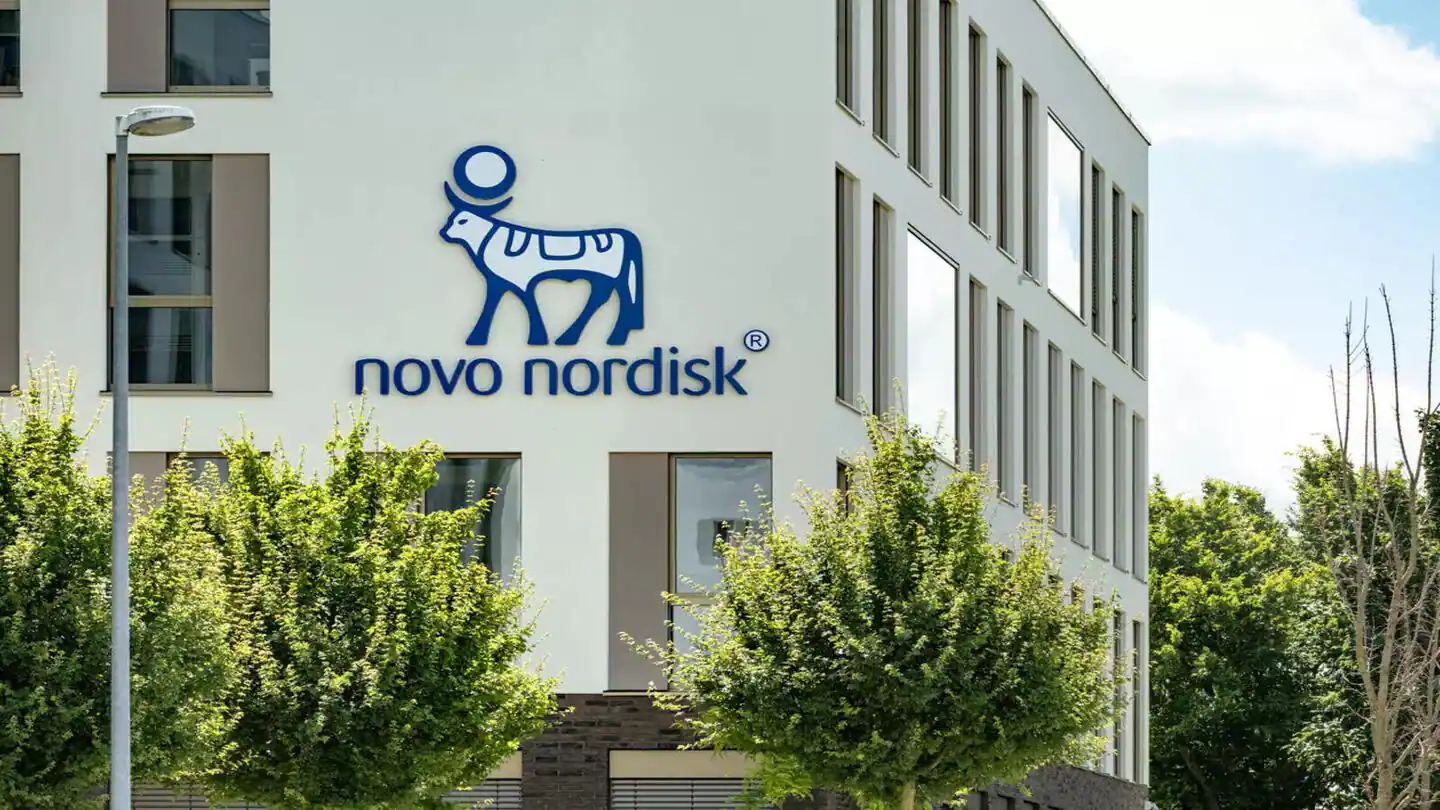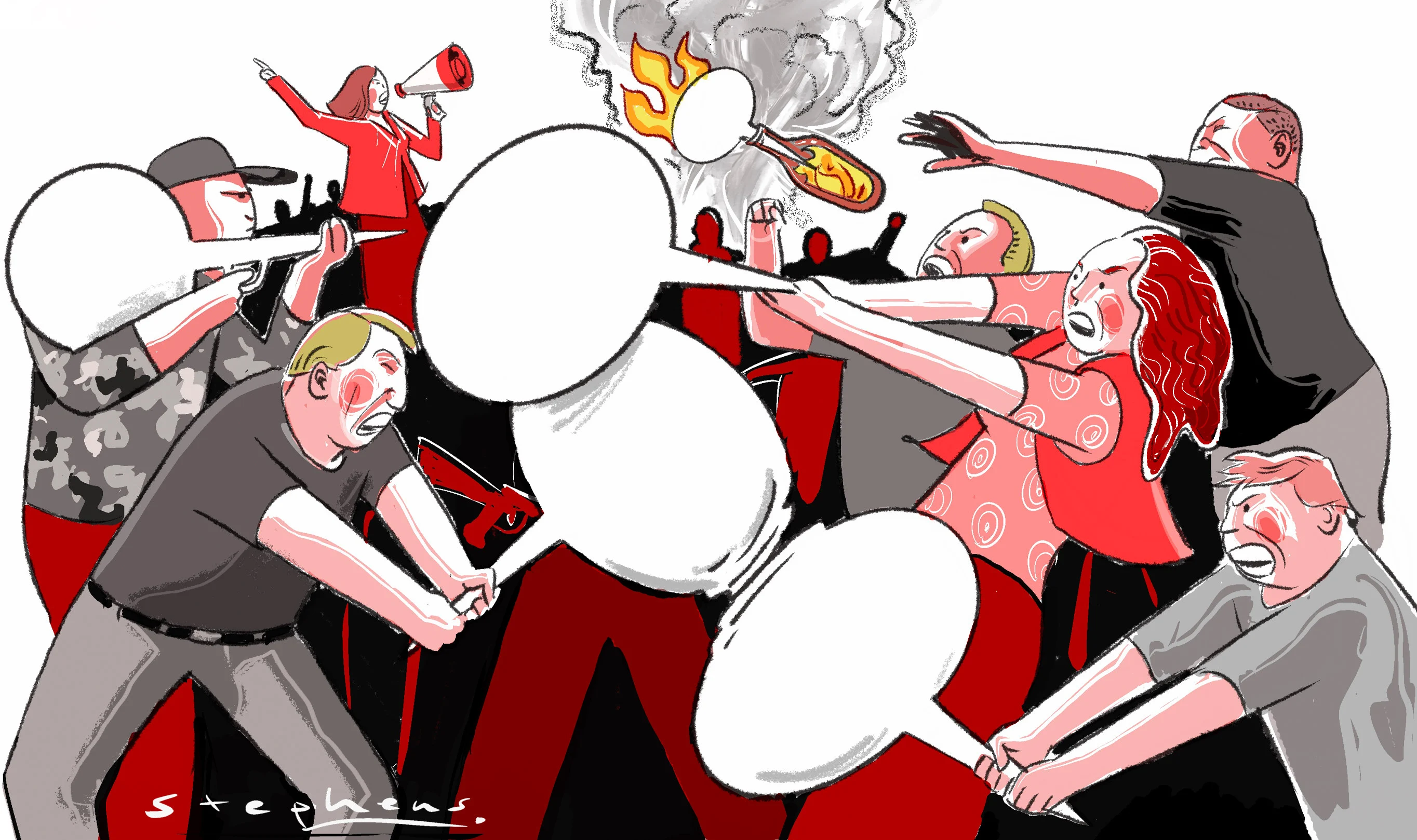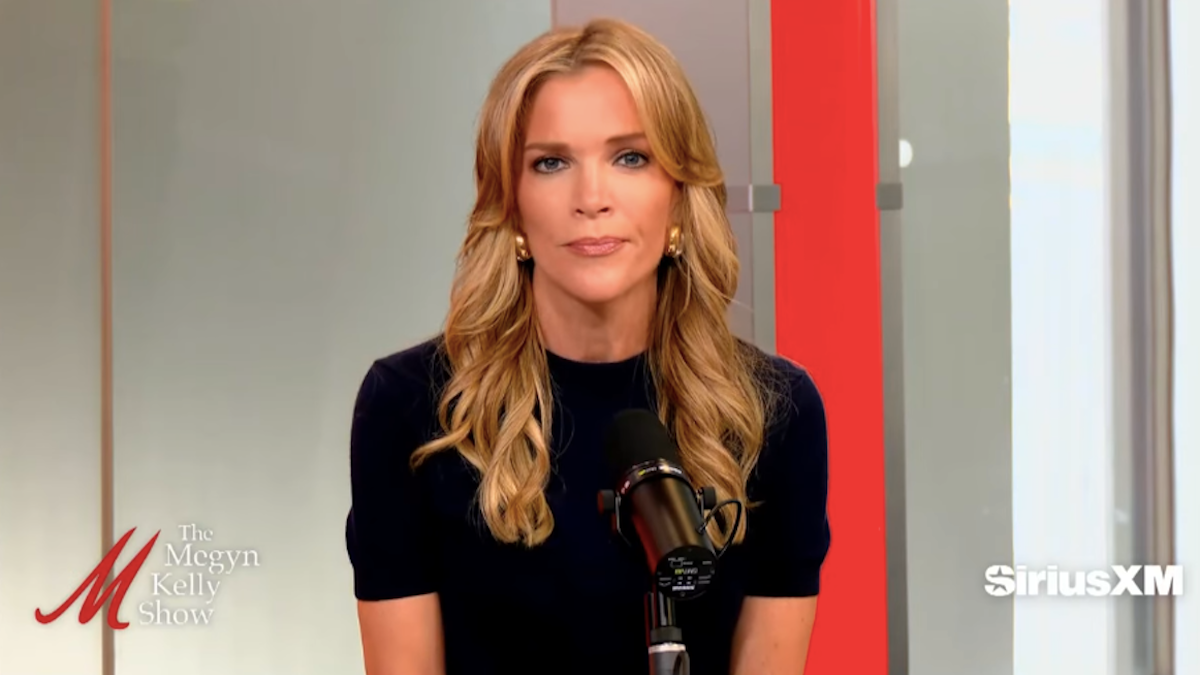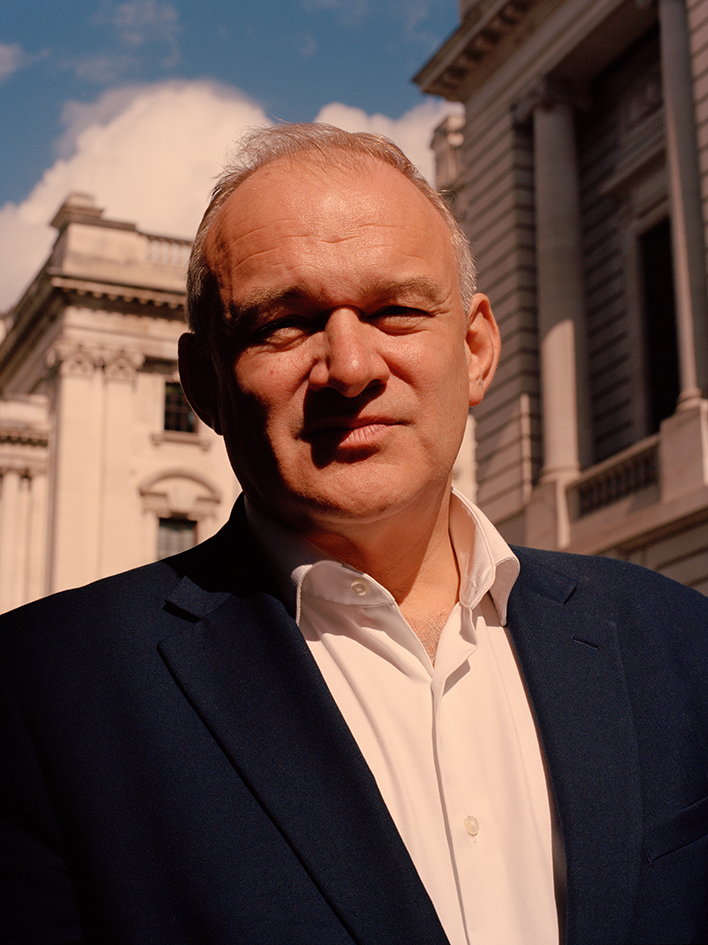By David Hennessy
Copyright theirishworld
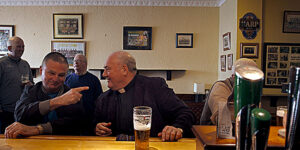
Documentary maker Alex Fegan told David Hennessy about his film Sins of Ireland before it’s UK premiere at the Irish Cultural Centre in Hammersmith this week.
The Irish Cultural Centre in Hammersmith host the UK premiere of Sins of Ireland this week, to be followed by a Q & A with director, Alex Fegan.
The film offers a nuanced exploration of the Catholic Church in Ireland through the lens of the sacrament of confession as a way of understanding our past, as well as where we are now and where we are going.
It comes from Alex Fegan, the director of thought- provoking documentaries like Older Than Ireland and The Irish Pub.
Through the prism of the confession box, Sins of Ireland is a portrait of an overlooked aspect of Ireland’s past and how it impacted many parts of the world.
Fifteen Irish priests, known for hearing the confessions of others, outline what the sacrament of confession was supposed to be and, while confessing the sins of the church, what it became.
The documentary is an uncynical examination of confession, as the priests themselves acknowledge how a rite meant to offer absolution and guidance had for many years become a tool of control and shame, with devastating consequences.
For filmmaker Alex Fegan, this was a documentary he felt he needed to make to learn more about where we have come from as a people, and where we are going.
Fegan says: “Growing up in Dublin in the 1990s, the grip of the Church over our collective psyche was loosening. I was at once intrigued by the rituals and appalled by the abuses of the Church. As the years went by, I found myself questioning everything about what the Church had meant in people’s lives over the decades and centuries, including what we may have lost as well as what we may have gained as people have moved away from religious traditions. I have always been fascinated by the concept of forgiveness, which I feel is one of the most fundamental aspects of what it means to be human. And when my son was on the altar making his first confession with the Parish Priest, as I observed this I went into a sort of daydream as I wondered about this ancient rite of passage – to some this must seem absurd in the extreme, repulsive even, and to others it must be moving & sacred. And so, I set out to speak with and understand priests in Ireland in the 21st Century through the prism of the confession box – these people about whom most of us know so little, yet have heard so much. Making the film taught me many things about them, myself and life itself. If people get even a small bit as much from watching Sins of Ireland as I did from making it, I will be delighted.”
How did the film come about? Did it come out of the previous film, The Confessors?
“Yeah, it did.
“It was an expansion of that.
“That was a much shorter version for RTE.
“I just felt that there was more to the story that I just wasn’t able to capture in that shorter version and so decided to go back into the edit again and that’s how it kind of expanded.
“The idea itself kind of came from my son making his first confession.
“On the one hand, I was really cynical about it but on the other hand I was going, ‘Well, if you take it at face value, there’s something kind of amazing here’.
“I just thought, ‘This is something that we’re asking all our kids to do still in Ireland’, but I hadn’t seen anything explored on it.
“And then the idea of kind of honest introspection.
“We’re so inclined nowadays to kind of point the finger at everyone else but it’s much harder sometimes to point the finger inwards.
“At that moment I was thinking, ‘That’s what confession is all about’.
“Confessing is something that we’re almost taught not to do.
“I originally qualified as a solicitor and I remember my first day going into the Law Society I actually came in late and I said, ‘Sorry’.
“And the barrister said, ‘Never apologise’.
“And I remember kind of thinking, ‘God, is that really what we’re being taught now, never to apologise? Is this the new life?’
“I didn’t last long in that profession.
“I ended up taking three months out to explore filmmaking and then never went back.
“All of that is sort of the impulse for making it.”
Were there surprises for you along the way of going to meet these different priests?
“There were loads of surprises along the way.
“I didn’t know where to start so I just asked around people that I knew that might know a priest that might sit for an interview and then that priest would recommend another priest up the road, who would recommend another priest and that’s how it kind of went around.
“But the first surprise was they all said yes to being interviewed immediately.
“The second surprise was how immediately they all spoke about how the confession became distorted from the original intention of it to something that was more controlling, more focused on sexual sins.
“It just became incredibly puritanical which was very different to the way it was.
“And then it sort of spread out throughout the world through Irish priests that went to Australia or Canada and so that idea of the sins of Ireland, it’s almost like whatever cocktail was mixed up in Ireland, it seemed to be have a negative impact in so many other places.
“I didn’t know any of that which was a big surprise.
“I was also quite really surprised about how open the priests were.
“I thought they would be a lot more reserved or cagey or less likely to be critical of the church, but they weren’t.
“I think they felt that it was time to just be open about it.
“If this film was made ten years earlier, I don’t think it would have been the same film at all.
“I think there was so much going on.
“I think the idea was, ‘It’s time to open it’ which was a surprise.
“The church has to be open.
“As Father Iggy O’Donovan said, ‘Loyalty is a great thing but misplaced loyalty can do incredible damage’.
“And I think whatever about the abuses, which were horrific but the concealing of those abuses, the hiding them. The denying them.
“That’s where the real damage is done and then it loses credibility.
“And, of course, because these people are preaching the gospels, we expect them to live to a much higher standard.
“It just became a dark institution in Ireland.
“These priests that just happened upon this documentary were very open about that and I think the key question that I was wondering is, ‘Okay, you’re very honest about the shortcomings but why are you still in it?’
“And they’re still in it because they accept they have to separate the institution from the message.
“The institution will always be fall short because it’s made up of men but the message is what they still stand by.”
They are open about the abuses of the church, the priests also speak about the abuse they get perhaps at weddings after a few drinks when people decide to have a dig at them about paedophile priests..
“That was Father Con Cronin who actually sadly passed away shortly after the film was finished.
“But he said he wouldn’t wear a collar because it would become a kind of focus of hate which I think is a sad indictment on people in general to some degree.”
There’s a sadness about these men being so dedicated to a church that they accept is in ‘decline’. The striking image is of disused confession boxes being used for storage..
“It’s funny.
“People said that was the saddest part, that all these confession boxes were used for storage rooms but actually, if you went along to some of the churches at Easter or Christmas, you would still see big queues for confession.
“And in a way, it’s better that they’re not in a box, that they’re out in the open now and people kind of meet, sit down in the pew.
“I think it was Father Maurice Brick in Lixnaw, Kerry that said, ‘Look, the dark confession box. That’s over now. That’s gone now’.
“And I think that’s true.
“But I think for them, for so many of the priests, it was still the high point of being a priest.
“That same priest talked about hearing people’s last confessions and just seeing how people kind of relax under what he said was this mercy which they didn’t think was there because they probably hadn’t been to confession since they were seven and they were really nervous.
“So from that point of view, you could see why it meant so much to them and also why the distortion of it became a point of annoyance for them or major frustration anyway.”
It was during your filming that COVID struck so you then depicted how the church reacted to that..
“Initially I was thinking, ‘Oh, this is an interesting window to look at how any institution can move away from its mission statement’.
“So the film could have been almost about Google or any other major institution or corporation that has a mission statement but then kind of moved away from it and why that is.
“But because the mission statement of the Catholic Church being probably the oldest institution in the world continuously going, is so well documented and moving away from that mission statement is very transparent but the other aspect of it is about the kind of the spirit of the church and how the church can adapt.
“That’s where COVID came in because it was complete chance.
“I think initially when it happened I thought, ‘Oh, there’s the film gone now’ because I wanted to follow priests going to cinema and doing normal things but now I could just film them doing mass on their laptops and computers.
“But what I think it showed was that when circumstances dictate, the church is well capable of adapting and finding new ways of reaching people and getting its message across and so in a way, it showed an acute adaptation for an institution which really hadn’t adapted at all in so long.
“There’s all sorts of theological arguments as to why it shouldn’t adapt, that’s probably well above this documentary’s remit.
“This was the first time churches were closed in Ireland since penal times and here they were reaching audiences through a mobile.
“Confession probably spiked a little bit during COVID in some of the churches that actually heard confession.
“I think it was a time of reflection.
“It was a time of standing back.
“It was funny.
“Father Kevin (McNamara) would do these drive through confessions where he would sit in his car and the cars would kind of come along and the amount of people who were going to confession was unbelievable.
“I could have been there all day filming cars going around.”
At the end of the film the audience learns that Father Kevin has since passed away..
“Yeah, that’s right.
“Two priests died: Father Con Cronin and Father Kevin McNamara who he put the ‘Doorway of Hope’ message over the door where he used to say mass.
“He used to stand at the door and all the cars would be in the car park.
“I was actually supposed to meet Father Kevin that Christmas and he died on 21 December.
“I told him I was going down to Kerry over Christmas and I would meet him for a pint so that never happened.
“And then also Father Con went.
“I told him I’d meet him for a pint there and didn’t get a chance.
“It’s always incredibly sad when you spend that amount of time filming people for a documentary and then they pass on.”
How do you see Ireland’s relationship with the church now? Is it a case of never going back?
“I think the church will be a different church.
“As one of the priests said, the clerical church just won’t be there.
“The age profile of priests, the number of priests joining, has unbelievably diminished.
“If you go to Holland now and if you go to a Catholic church for a funeral, you won’t get a Catholic priest to say your mass.
“It will be so very often a female Deacon who will do it.
“The future of the clergy in Ireland is probably not great unless there’s a major change in terms of priests being allowed to marry or things like that.
“It’s just the way the world has gone but then again, things change, and who knows?
“The church has lasted this long so there’s definitely something that people find incredibly profound with it.
“I think it will definitely outlast us all but it’s a bit like when I did a documentary called The Irish Pub.
“I remember thinking, ‘Oh, the Irish pub will never die out but you drive around Ireland at the moment, they’re all gone so will that be the same? Are churches going to be deconsecrated? Are they going to be turned into apartment blocks around the cities? At that point people might realise that maybe they threw the baby out with the bath water.”
That is a bleak picture. I think of some villages in Ireland and they have little more than a pub and a church..
“Exactly. I was driving through all these Limerick towns recently and I couldn’t believe the pubs were all boarded up.
“The churches are still going but what happens when the priest die?
“Father Kevin was doing masses in about three different churches before he died.
“It’s a lot of stress that they have on them and they’re doing funerals and weddings and christenings and communions, and then they’re getting abuse for it.
“It’s funny.
“I remember when I kind of got into the film I was kind of going, ‘I think I’m making a film about what would be perceived as the most uncool profession.
“Here’s this profession which is all male, all celibate. They’re tainted with this sweeping accusation that they’re all abusive in some way, and yet they’re still doing it. It’s amazing.”
In the film some priests say the church will probably have to embrace the involvement of women.
Another priest says it wasn’t right how the church wanted to push women off to one side and LGBBT to the other.
It has to be more inclusive, doesn’t it?
“As Father Iggy said, When Jesus saw the woman who committed adultery, he went over and he said, ‘He who has not sinned..’
“It was all about welcoming.
“The church just maybe moved a bit away from that.
“Who am I to say what this institution needs to do?
“It just needs to speak the love of Jesus and not kind of dwell on the power of the institution.
“How does it get back to the love of Jesus and not the power of the institution?
“One of the priests Father Joe said, ‘The church is at its best when it’s on its knees, but it’s most comfortable on its throne’ which probably says it all.
“And that’s probably the same for any institution that has people in it, it will always be corrupted in some way at least.”
What effect did spending so much time with priests have on you personally?
“I would say that it definitely helped renew my faith.”
Did you see the film starting a conversation?
“Yeah, I think so.
“When it played on RTE the opening tweets were, ‘What is RTE doing playing this film about confession? This is ridiculous. What is going on?’
“It was very critical.
“And as the film went on, the tweets started to change and it was like, ‘Oh, there’s more going on here’.
“So just to see that reaction.
“You could actually see the change as the film went on so that was interesting to see.
“People have definitely said that the film made them think just a bit more.
“I think we were all very quick to just say, ‘Oh God, we need to move on from this.
“These are human beings, these priests. They’re actually our brothers, they’re our uncles, they’re our cousins, they’re not these strange people that did horrible things.
“And perhaps if the film in a small way even so much as made somebody even just think twice a little bit about it, that’s the best you can ever hope for.”
Sins of Ireland has its UK premiere at The Irish Cultural Centre in Hammersmith 7pm on Thursday 18 September.
For more information and to book, click here.
